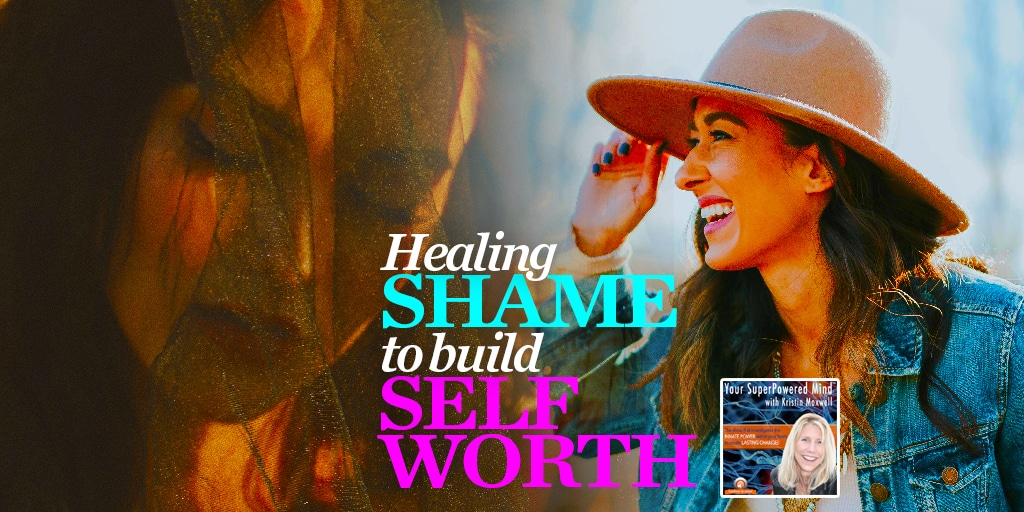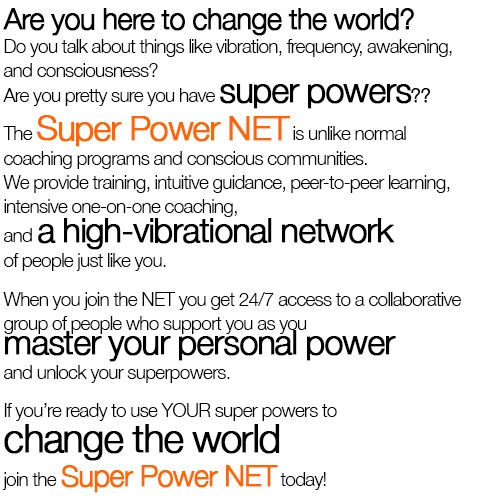
Hello everyone, welcome to Your SuperPowered Mind. I’m your host, Kristin Maxwell, and in this show, we explore the process of transformation and give you tools and strategies you can use to transform your own life.
Today we’re going to be talking to Joy Freeman about healing shame to build self-worth. Joy Freeman has been a pioneer in the field of health, personal growth, and transformation for over 35 years as a natural physician, transformational life counselor, speaker, and workshop facilitator. As an author, her most recent book is 7 Keys to Connection: How to Move Beyond the Physical and Emotional Trauma of a Disconnected Culture Joy, leads transformational workshops and retreats that incorporate expressive arts, deep process, ritual, and nature.
Joy, welcome to Your SuperPowered Mind.
Thank you. Hi.
Hi. Great to have you here.
Thank you.
So my first question always is, what super power did you uncover as the result of mastering your mind?
Well, there are many. But I’m going to say one that has been really potent, and that has been the capability to uncover any nooks and crannies in my consciousness where I have not fully loved, accepted, allowed, and judged, or perhaps judged myself in those places.
So learning self-compassion, not just in general, you know, we can talk about that and say, “Oh, we need to be compassionate,” but really learning how to get in there and find out, what are the little shadow pieces, what are the places in me that I have not allowed or have not even known they were there, but needed my love, acceptance, and ultimately transformation or they transformed when I did that, let’s say that.
Right. Well, that’s beautiful, really, that idea of self-compassion towards all parts of you. And that is something that I think we don’t pay very much attention to, which is one of the reasons why I’m so glad to be able to talk to you today, because some of the work that you do revolves around shame and developmental trauma.
So I want to start first by, what is shame? How do you define shame?

Shame is what’s underneath depression, anxiety, addictions, long term chronic health issues, on and on and on.
Shame is what’s underneath depression, anxiety, addictions, long term chronic health issues, on and on and on. Shame lies underneath it. And only recently have researchers and therapists and people who understand the psyche, only recently are they bringing it to the fore. And basically what it is, it’s when we come to a place not with our conscious mind necessarily, but our subconscious mind, that just says, “I am bad. I am no good. I am unlovable.”
And we’ve heard these kind of belief systems over the years, but this is different. And it’s not, “I’m that because I did this wrong thing.” That’s guilt. This is just an inference that gets in there, and it gets in there for a number of reasons. And I don’t know if you want me to go into those reasons yet, but..
Yeah, I would love to. First of all, is this something, would you say that shame is really common? Is this something?
Oh, yeah. It’s pervasive in our culture. And in a little bit I’ll tell you about some of our reactions to shame, like how people respond to it. But before I get into that, I guess I will say how does it get set up. Well, so let me, I’m going to take a little side step to something called ACEs, I don’t know if you’ve ever heard of them, those are adverse childhood experiences. And unbelievable how prolific they are. And they came about through a study that Kaiser did many years ago along with the CDD, Center for Disease Control.
And what they found was that a huge percentage of people have at least one and often three of four. And the people in their hospital who had these conditions, mostly all had a higher number of them. And what they are, are, for example recurrent physical abuse or emotional abuse, sexual abuse, or emotional or physical neglect, divorce. I mean, think how many kids go through that. But particularly, not just a divorce, but angry divorces and separations, or having an alcohol or drug abuser in the house, or an incarcerated household member, or someone who’s chronically depressed, suicidal, or mothers who have been treated violently, or partner violence, and having one or no parents.
These are what we could call more obvious traumas, and they are developmental trauma. They’re what we call a developmental trauma because they happen as we’re growing, and often ongoing. A shock trauma is like one incident, really bad, but when we have ongoing, they call it developmental trauma. But what I find really interesting is that it isn’t just these kind of traumas, it’s also, what’s really coming to the fore is the concept of non-attunement. And attunement means, and from this, we form insecure attachments.
So attunement means that the mother is able to calmly look in your eyes, her face is lifted, and this goes into something called Polyvagal theory, which we may or may not have time to go into, but it’s fascinating, because when that face lifts, the smile, the prosody in the voice, which is like a lilting voice, a happy voice, a kind voice, it triggers cues of safety inside the being. And when it doesn’t have that, it’s the opposite, it goes into threat. And when it goes into threat, then you have this internal fight or flight, which is an aroused, sympathetic nervous system. It can also go into freeze, which is a place where you eventually just sort of collapse and give up.

We want our kid to be the best.
Well, anyway, all of these circumstances, when we do not have this connection, and I like to bring it up because it happens in normal households, even when the parents are doing the best they can do. They’re also in situations where, “We want our kid to be the best,” so they’ve got them in all the courses, running them around, the stress, the eternal stress that creates, and/or because, “Oh, it’s so dangerous. Your kid can’t go out and play,” so they’re projecting their fears, even though they’re loving parents, but they’re projecting so much tension and anxiety, that it causes that kind of reaction.
Right. That’s fascinating. So basically what you’re saying is all of us to some degree will have some degree probably of non-attunement from our parents, and then some degree of insecure attachment.
Yes.
Fascinating. And I really want to go into it a bit more. We need to take a break. Can you very quickly tell people where people can find more about you? You’ll have the opportunity again at the end, but I just want people to know before we go to break.
Okay. Well, I have a website, it’s drjoyfreeman.com. And my number, I’m really happy for people to call me, I know you’re not supposed to but I don’t have that kind of fear that people are running, is 727-242-1311. Or you can email me on the website, has information for how to email me directly, drjoyfreeman.com is easy to remember. And then there’s my book as well, you can get more information on the 7 Keys to Connection book, which is available on Amazon and through different bookstores if you ask them to order it and such.
Great. That’s awesome. So I am very excited to go more into the process of healing shame to build self-worth. But we are going to go to a break.
All right.
To listen to the entire show click on the player above or go to the SuperPower Up! podcast on iTunes.
Podcast: Play in new window


